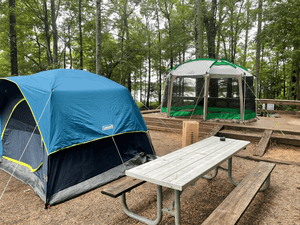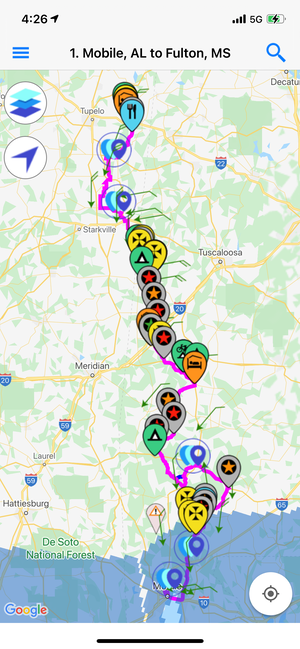Underground Railroad Trail
The beginning of the Underground railroad route starts in a rather innocuous place. A small spot just outside the Alabama power company building with a city sign marking the spot of a former slave market in the 1800s.

Not at all what I was expecting.
The location lacks the grandeur of the city fountain in Montgomery, recently marked—excuse me, I mean, ahem, painted with Black Lives Matter around it. Still, it is as good as any other place to begin the journey on a trail, cobbled together to pay homage to the journey to freedom so many slaves embarked on.
Standing in front of the sign, it reminded me of a friend that once visited Stone Town in Zanzibar. Stone Town is known as the location of the last slave market, sending captured Africans across the Atlantic. Turned into a UNESCO World Heritage Site in 2000, they marked the location with a haunting sculpture of Africans standing together, chains around their necks.

My friend told me she felt a deep sense of sorrow and awe standing at the site. She was so overcome with emotions she could not stop the tears from breaking free.
My reaction standing in a location where past Africans were sold as chattel was decidedly less emotional. I did not feel a thing. Now perhaps it is because a lone sign on a downtown city street is just not capable of eliciting any emotion. And yet... I know that in today’s world of racial accusations there are many that would have the same reaction as my friend standing at a pier in Africa.
I tend to not support such thinking. My view is simple. The past must be remembered, honored, taught, and sometimes revered. At no point, however, should the past be a place you wallow. Especially when it is a past that includes pain that you never experienced. Not a single black person in America today was ever a slave. The last known American, born into slavery, Matilda McCrear, died in 1940.
When McCrear died, she was no longer a slave, but she was not free. America in the 40s was a frightful place for blacks. Jim Crow laws enforced a separate and unequal America with an iron fist. Today, Jim Crow is a thing of the past. No different from the location of the slave market in Mobile, Alabama. Today, I can honor the past without getting caught up in recriminations against other Americans in the present.
My trip is starting out spotty. I've had some destination issues, I just realized I forgot my power cord to my laptop, and my brother is driving me crazy. Second thoughts and doubts about whether I can do this trip constantly swirl in my head like emerging Cicadas.
Believe or not, I think it is rather like the journey of escaping slaves to freedom. I imagine doubt chased the escapees as hard as their angry, soon to be former owners. Would they make it to freedom? Would they be killed or maimed in the pursuit? Was freedom something they would truly find, or would they trade one master for another? Nothing in life was easy or guaranteed at the time in history.
My own logistical challenges, obviously pale compared to what escaping blacks were facing. The parallels of nonlinear movement are there. I have the luxury of enjoying my journey—if I remember to—without the need to hide from roving possess hunting me down.
I'm FREE to worry about food and money or laptops. Perhaps that is the lesson that we all should take from a small sign marking a horrific spot in history. Important events in the past do not have to be important events in your present.




